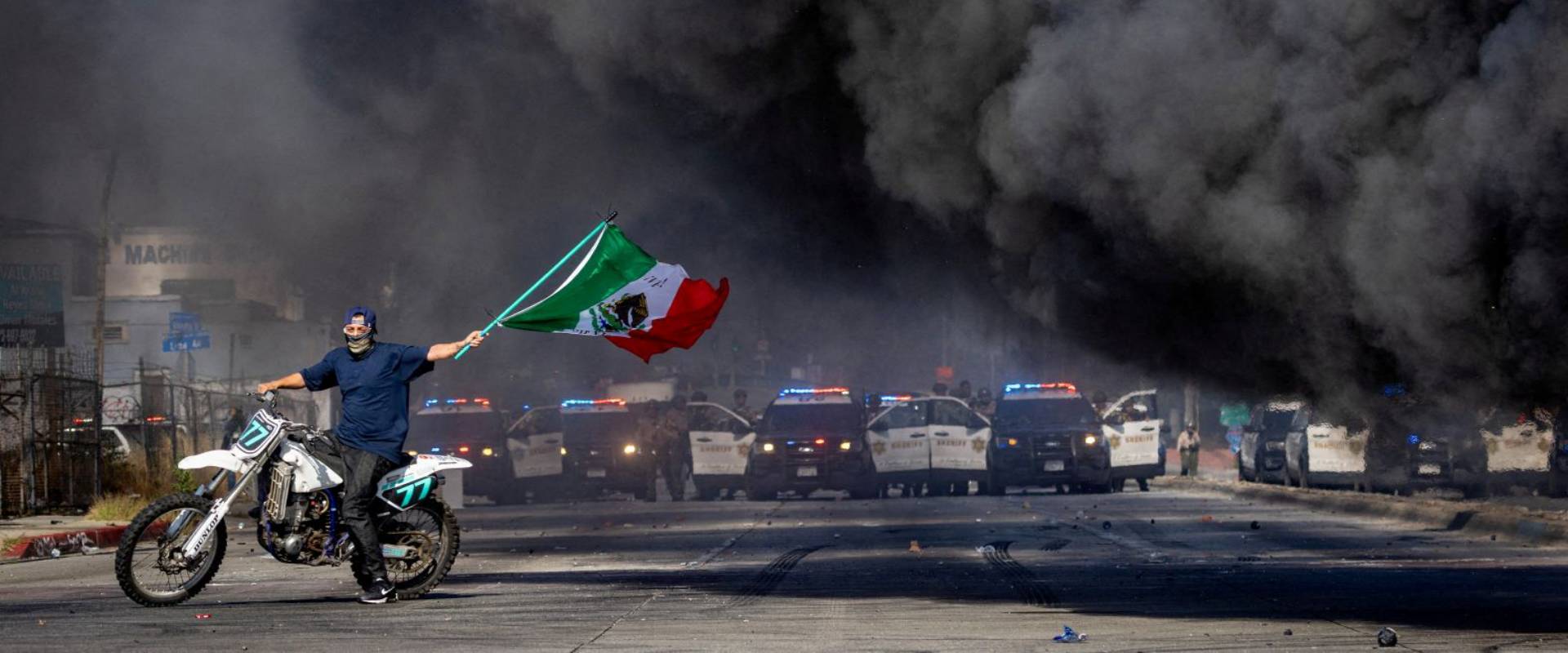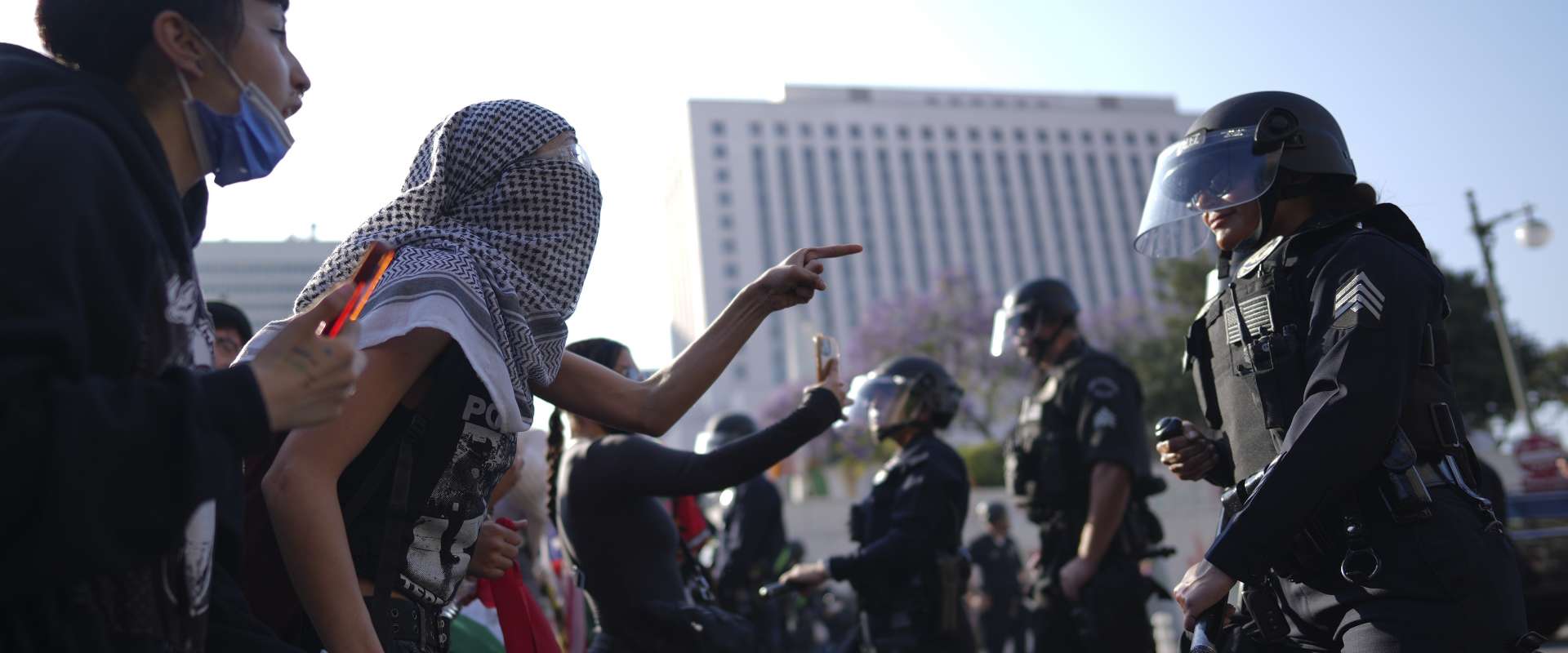“A supporter of the theory of scientific communism does not take anything on word. He judges everything by reason and experience…. Bureaucratic and artificial discipline has crumbled to dust at the moment of danger. Revolutionary discipline does not exclude but demands the right of checking and criticism. Only in this way can an indestructible revolutionary army be created.”
— Leon Trotsky, The History of the Russian Revolution
“Are comrades underconfident? Possibly. But there is a reason why. There is a branch culture of people not saying what they really think; it may have been easy to miss because this did not happen overnight. Comrades who raise alternative assessments or even comrades who agree with assessments but propose a different plan of action are often told, “they don’t yet truly understand” the ISO’s project and that is the reason why they have their own assessment.”
— Two Boston ISO Comrades, “Alternate Assessment of UMass Boston, 2012”
I was a member of the Boston branch of the International Socialist Organization (ISO) for eight years. In that time, I grew into a revolutionary Marxist steeled in the politics of working-class independence, anti-imperialism, self-emancipation, and liberation.
Through the capitol occupation in Madison, WI, the Middle East and North Africa revolutions and Occupy, I saw how the ISO could act wonderfully as a disciplined unit. I saw the necessity for this kind of organization to be the “red wedge” to help lead the class struggle on the ground. When the police tried to shut down Boston’s Occupy encampment, we sprung into action. We went out into the crowd, arguing with other occupiers about defending the encampment and marching to precincts to free those arrested. From Trayvon Martin to Mike Brown to Freddie Gray, we were active in organizing emergency protests, bringing together loose networks of activists for mass marches, and contributing to the politics of the movement.
“A Bolshevik is not merely a disciplined person; he is a person who in each case and on each question forges a firm opinion of his own and defends it courageously and independently, not only against his enemies, but inside his own party.”—Trotsky
I saw the proof of why we needed revolutionary cadre everywhere. Unfortunately, for all our dynamism and principled revolutionary politics, we failed at building the very independent-minded Marxists that I had hoped for.
What bureaucratic leadership looked like
I’ll spare my entire ISO biography from 2011-2019. Suffice to say, I had been bringing up issues of branch culture since at least 2012. Here’s what I wrote in November 2012, assessing the UMass Boston branch’s toxic leadership culture, at the time led by one comrade with several years’ more experience:
“[I]n order to grow in this period we must work to develop the kind of culture that turns the branch into confident political activists. We feel confident when we feel our contributions and collaborations can shape the direction of the organization — and we learn how to debate and defend these contributions…
For new comrades like myself, we can tend to at various times defer to [leading comrade]’s perspective being the most experienced comrade, the branch coordinator and (in some sense) our mentor. We can also feel frustrated when we feel we’re being told what to say/do/etc rather than engaged with. [Leading comrade] has also at different times substituted himself for the work and development of other comrades.”
In that, I’ve been joined by other comrades. This is what two other members wrote, also in November 2012:
“Are comrades underconfident? Possibly. But there is a reason why. There is a branch culture of people not saying what they really think; it may have been easy to miss because this did not happen overnight. Comrades who raise alternative assessments or even comrades who agree with assessments but propose a different plan of action are often told, “they don’t yet truly understand” the ISO’s project and that is the reason why they have their own assessment.”
This is me in August of 2012, again arguing for “a branch culture that builds confidence:”
“We are not remotely close to a revolutionary situation in this country — nor would [we] be ready for it if it came. As a result, newer comrades (and even close contacts) should be given more space to make mistakes and learn from them. Branch leadership should focus on: charting a general way forward for our work, giving comrades space to creatively implement that perspective, and facilitating assessment for comrades to learn from.”
This is one of the above comrades, writing separately in May 2013:
“I feel discussions on perspectives can be done totally backwards, instead of people coming together to form a perspective it seems more like the purpose of the discussion is to “win” anyone in the branch who has disagreements with the perspective being presented. When people try to address that aspects of a perspective are overblown or don’t match what Boston is like right now it’s always because the comrades raising stuff are dismissive, demoralized, sectarian or don’t understand that the ISO is a distinct project, ultraleft or too conservative, or they just don’t understand. In order to prove they aren’t any of those things comrades go along with or go overboard with agreeing with the perspective and things become really overblown.”
Having only four or five comrades, and only one “leader” (who recruited and trained all of us), the UMass Boston branch was suffocating. If you raised any alternative proposals or ideas, you would need to be ready for a sometimes 3-hour-long call from the branch organizer, until he won either by overconfidence or attrition. This was especially damaging for the woman comrade of color in the branch, who left the organization after a few years.
We attempted to change things. We brought in the district organizer to hold a couple different sit-down conversations with this leading comrade, to address our issues. But things didn’t fundamentally change. He remained our branch organizer and he was still held up as a leader inside the four-branch Boston ISO district.
At times, I had also raised the need to move from a propaganda group, to one more rooted in struggle. From the August 2012 campus document again: “External growth requires more than tabling. It’s about rooting ourselves in the struggles and the overall campus community.”
Any discussion of such perspectives, though, requires a much more thorough look at the state of the world at the time in question. The scope of that task is well beyond what I can fit here. Suffice to say, conversations around both issues took place for years inside the Boston district. Neither were dealt with adequately, especially on the branch culture front.
Four responses
After 2012, the top-down leadership culture continued in a combined Boston branch. While I no longer dealt with 3-hour-long calls with the branch organizer, dictates were enforced in different ways. This enforcement then sharpened as a bitter faction fight in 2013 that led the whole organization to stiffen.
For the last few years of the ISO I had been consciously isolated from the branch by leadership. Branch leaders freely admitted to other comrades that they were trying to push me out of the organization.
The “pile-on” was one method: did you raise a disagreement? Be prepared for the leadership to come in on stack one after another to tell you why you’re wrong! The other method was the “razor.” We’ll pick apart your ideas and your membership in the most mean-spirited way, or we’ll misquote your argument back to you and set up an easy strawman to cut down.
I continued to raise different perspectives and ideas, and faced a wall. The “pile-on” was one method: did you raise a disagreement? Be prepared for the leadership to come in on stack one after another to tell you why you’re wrong! The other method was the “razor.” We’ll pick apart your ideas and your membership in the most mean-spirited way, or we’ll misquote your argument back to you and set up an easy strawman to cut down.
Back in December 2016, I mentioned to the branch organizer via email: “Honestly, sometimes I feel a bit intimidated by you. I know how razor-sharp your analysis can be — and without any exaggeration I sometimes get a physical tightness in my chest even just waiting for that razor to come down against me.”
I have later realized that these moments were panic attacks — mental, physical and emotional distress from being attacked by comrades I was supposedly fighting alongside for a better world.
Still, at times, the razor didn’t come down. Disagreement was at best tolerated, often discouraged, and at worst pilloried.
I became an example for the rest of the branch in the worst way. Over the last years of the ISO’s existence, comrades would sometimes tell me privately there was “no way” they could bring their ideas into the branch meeting, for fear of being shut down.
As for me, this situation embittered me to my comrades. I saw less-experienced comrades who followed “the perspective” get handpicked for branch roles I was always passed over. I stayed in the organization through the bullying and marginalization because I was genuinely committed to the politics — and no less out of a bitter refusal to be pushed out. I turned to Lenin, Trotsky, and others to help arm myself against the leadership’s barbs and razors, sometimes quoting entire passages in meetings. But the misanthropic attitude that grew out of my forced isolation, a mistrust of not only the leadership but the ones they favored, only isolated me further.
I’m not proud of the behaviors that grew out of that isolation. The lack of self-confidence, the feeling of being passed over, the constant attacks built up a certain rigid meanness of my own. I acted like I had all the answers to protect my own psyche from the leaders’ barbs.
Upon reflection, I believe the ISO’s bureaucratic leadership methods created four main responses among members:
- Those who learned to follow orders, to implement the perspective enthusiastically. They were rewarded with greater social standing in the branch. They learned how to be lower-rank enforcers themselves, perpetuating these methods.
- Those who had disagreements, but kept them under wraps (or brought misgivings up only in private conversations). They were tolerated, but were seen as, at best, foot soldiers. They often accepted this position.
- Those (like me) who tried to raise disagreements and, when they couldn’t be brought into the line, were ostracized as a result. So long as they remained in the organization they were kept at arms’ length from branch roles, and (at least for me) driven into social isolation.
- Those who tried to raise disagreements and were ostracized, like group 3. However, this group became so frustrated with their experiences they either left or were pushed out of the ISO. I believe the flight of this group was one reason we failed to ever crack 1,000 members between 2000 and 2019.
Obviously these are not hard and fast categories, rigid boxes that everyone fit neatly into. There were always shades between these different layers. And sometimes folks jumped from one category to another entirely. But none of these led to a real independent cadre.
What kind of cadre?
This isn’t to say that everything we did was bad. Partly in spite of, partly because of our organizational norms, we recruited and trained people to think and argue as Marxists — even if that sometimes meant rigidly following a perspective. Nationally, we built a cadre that (if not for the sexual assault coverup) could have replaced the old leadership.
However, this cadre had its limitations. It failed to act independently and often deferred to national leadership. When cadre members served on disciplinary and appeals committees to hear the fateful sexual assault case of 2013, when they saw the national leadership unethically intervene into the investigation, they followed “organizational discipline” and kept the situation under wraps.
Nationally, we built a cadre that (if not for the sexual assault coverup) could have replaced the old leadership. However, this cadre had its limitations. It failed to act independently and often deferred to national leadership.
It was only after a split in the top national leadership (on the Steering Committee between the “SC Majority” and the “minority” trend of longer-standing national leaders) that a healthy discussion of perspectives could finally take place. For years, I had witnessed alternate perspectives raised in the pre-convention period either be ignored, tolerated (with no realistic space for democratically adopting these) or dismissed (sometimes with forceful expulsion).
This time was different. Once the door was open at the top, the cadre ran right through. This was the hope that the Independence and Struggle Platform represented, as well as the number of documents submitted in our 2018-2019 pre-covention period (the most that I had ever witnessed since 2011). Sadly, that hope was shattered when a leader of the I&S platform was exposed as having himself been a perpetrator of the sexual assault others had covered up. What little trust that remained in the organization then fell to dust.
As we reflect on the mistakes of the ISO and the type of organization we need to build today, all of us need to take to heart what Trotsky (in The New Course) called the model Bolshevik:
“A Bolshevik is not merely a disciplined person; he is a person who in each case and on each question forges a firm opinion of his own and defends it courageously and independently, not only against his enemies, but inside his own party. Today, perhaps, he will be in the minority in his organization. He will submit, because it is his party. But this does not always signify that he is in the wrong. Perhaps he saw or understood before the other did a new task or the necessity of a turn. He will persistently raise the question a second, a third, a tenth time, if need be. Thereby he will render his party a service, helping it to meet the new task fully armed or to carry out the necessary turn without organic upheavals, without factional convulsions.”
Without sacrificing firm revolutionary leadership, we can create a party that can build these model Bolsheviks everywhere. If we drop the triumphalism, the bureaucratic distortion of authentic Leninism, and the suffocating rigidity that plagued even an organization like the ISO, we can build something bigger and stronger than we ever had before.



